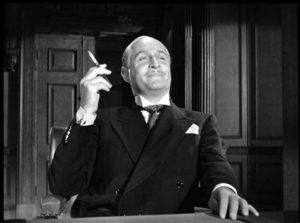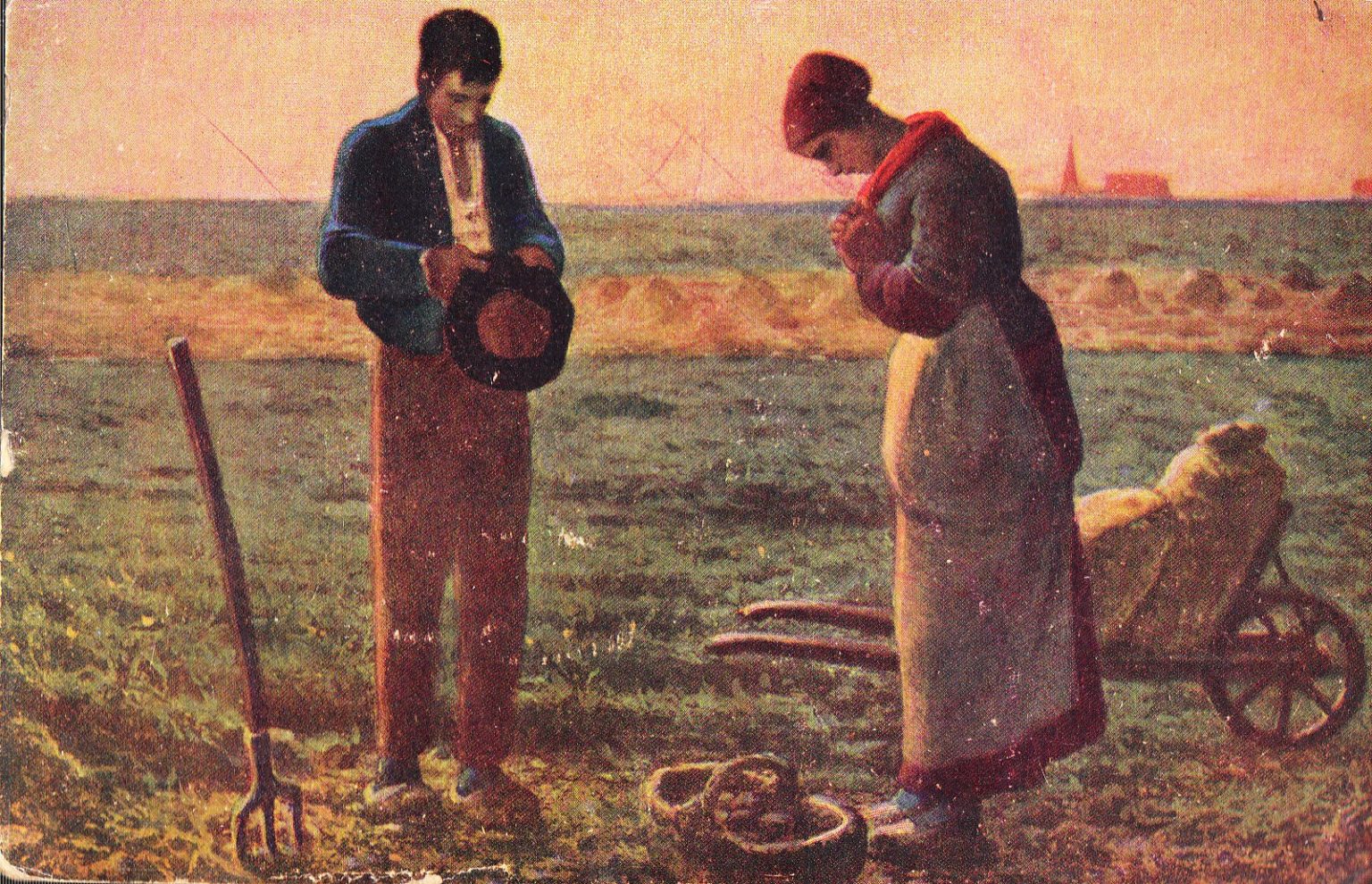Part II
The Gordon Gekko vision (1987) more or less defined the next iteration of Organization Man, which I learned the hard way after returning to the US, trying to help link up American entrepreneurs with business opportunities in Russia, Ukraine and the Balkans. Because of bootleg television and samizdat networks they most wanted to work with Americans, and to be able to avoid being sucked up in the web of the various mafias.
Tragically, they believed we were still the America of another era, especially an America whose word was good as gold, and a handshake would do.
Those of course were the Clinton years, and I got a closeup of how his government tried to broker business in the region. I was in Bulgaria a lot, and in Macedonia a few days, guest of a tile producer, looking for American clients. I vetted every producer, but over a decade, I had to “fire” most of my American clients for they were not looking for partners but people they could fleece, with intellectual property they could steal, which, by 2000 had become a robust business. Gekkos.
One of the greatest tragedies of the century, and some say a joke God played on those people, is that the America they wanted for years to be like, and to be able to work with, had died a decade before they had been freed from bondage and been replaced by “Greed is good” Gekkos.
Which leads us to the final query; if Nature favors capitalism, which kind?
Interestingly, this question was argued and decided in the way that Nature favored AC over DC (alternating current versus direct current electricity) in the electricity wars on the late 1890s. Thomas Edison developed direct current electricity, and built his plans around it via Edison Electric (General Electric) while Nikolas Tesla, a Balkan immigrant, invented AC, alternating current electricity, then sold the patent to George Westinghouse, who had the better business mind about the various uses it could provide the market.
See this 6 minute video, to see why both the market and electrical-user infrastructure decided AC was better.
(As you know, the Tesla name is back, in the as yet unproven hands of Elon Musk, who has developed the electric car, driven by, of all things, batteries which was the most effective use for DC in 1900. He bears watching.)
Edison has been vilified in recent years in part because he did not settle this dispute with Westinghouse in the manner of modern business; negotiations, lawyers and courts. But he was among the first and there were no roadmaps, so he helped blaze the trail, as did all the other Robber Barons, as they forced the issue of just how far their exploitation of natural resources, or labor, would be allowed to go under a free-market, constitutional republic.
Not only was Edison a brilliant inventor in his own right, his greatest invention may have been in “inventing” a place for other innovators to invent; Edison Laboratories.
But like so many more of the greatest minds of the Gilded Age, 1870-thru early 1900s, he was not formally educated with proper schooling. Therefore he did not meet the American’s elites New England view for a “proper man of wealth and distinction”. In short, his, and his kind’s, greatest detractors were the national media. Think of them as culture critics, the actor playing Ellsworth M Toohey in Ayn Rand’s “The Fountainhead” probably best defining the sort of preening judge of social propriety in media, who felt he could destroy a man’s career if his tastes did not match the social norm advocated by the press.

Now in the Gilded Age the Atlantic Monthly was the cream of the literary crop, and was among the first to complain about the gaudiness of this sort of wealth creation. It was originally staffed by Ralph Waldo Emerson, Oliver Wendell Holmes Sr., Henry Wadsworth Longfellow, Harriet Beecher Stowe, and John Greenleaf Whittier, with James Russell Lowell its first editor, but by 1900 it had given over to lesser men.
There were many more barbaric profiteers in the Gilded Age but at a time when progressivism was first rearing its head, the print media looked mostly upon the “Robber Barons”, a name given them by The Atlantic Monthly. The pursuit of great wealth on the backs of great achievement, which even today, still defines American prominence in the worldwide dreamworld, as the place everyone else still wants to be like…
(I remember a conversation in a sleeper I shared with two Palestinians who had just finished a winter semester in a Soviet technical institute, on their way back to the Intifada. Once they had ascertained I was not a Jew, all they talked about was being able to go to America to get rich. A very interesting night…those Muslims drank all my vodka!)
…had always been frowned upon by what was at one time called “old money”, and largely because of the lack of that proper education and social status.
Still, it was a prodigious list of achievers, right from your history books, that produced those early advances in technology creating our first batch of millionaires. So while one set of history book were written about their greatness, another, written for a much smaller set from the right old-money families, discussed the wrongness and unfairness of those achievements. Oh, did I fail to mention that the Democratic Party fired its last “conservative” president, Grover Cleveland, in 1896, the same time period, declaring itself the “party of the Worker”. Charles Beard attempted to rewrite the constitutional history to define the Founders as greedy bastards in 1913, followed by Howard Zinn, who attempted to rewrite all of American history as seen by the educated socialist eye The People History of the United States in 1980, even editing it for the middle school age-group in 2007.
Even in 1900 there was never any doubt about the history they wanted to replace. Or what they wanted to replace it with.
All because wealth in America had been created by mostly the low-born, (like Eisenhower) or under-educated, who had not even bothered with pursuing degrees, much less Ivy League degrees. Not a single one of the original Robber Barons was turned down at Harvard.
To be sure, Leland Stanford, educated and a lawyer, and a major figure in both railroads and Wells Fargo, was exempted because he was the founder of Stanford University. Another famous university of “higher than the average-bear-distinction”, Duke University, was founded by Washington Duke, who began as a subsistence farmer, then began growing tobacco after the Civil War, forming the American Tobacco Company. They both got a pass.
For obvious reasons neither of these universities are in the line-of-fire against the great wealth amassed by Robber Barons. But consider the list of those that were vilified: names such Andrew Carnegie, who got rich in steel, Cornelius Vanderbilt, who built steamships and railroads, and even founded Vanderbilt University but is still considered a Robber Baron because of his lavish lifestyle, Andrew Mellon and JP Morgan were in banking and financing who financed these gigantic projects, followed by John D Rockefeller (oil) and Henry Ford, who learned machinery (How Things Work) on a farm, and while he didn’t invent the automobile he did invent the assembly line. Neither Alexander Graham Bell who invented the telephone, nor Thomas Alva Edison, (see above) attended proper schools, yet their inventions revolutionized the world. Even two brothers who ran a bicycle shop in Dayton, Ohio invented America’s first aeroplane and first aircraft company.
The world would still be waiting for the internet, or computer software, if those 250 MBA’s that laughed about “monkey’s running a production facility” were in charge of enlightened invention. Bill Gates at least applied to Harvard, before quitting after two years to go invent things. And God, did he make bundles of money!
Only his legacy on how he spent it remains to be seen.
Many of the old Robber Barons turned to charitable giving inspired by deeper beliefs than the availability of tax dodges. Andrew Carnegie, for awhile the richest man in America, sold his steel company (U S Steel) when he was 46 and spent the rest of his life writing and teaching about the excesses of wealth.
Still according to modern thinking, their greatest sin was the pursuit of wealth, even though most of that wealth “trickled down” to employ and feed millions. Who they were and the way they made their wealth was crude and distasteful. In short, as still exists today, they were not the right sort of people to have wealth, a class notion that goes back at least to the Feudal Ages in Europe, when, after the Bubonic Plague had taken half the working population, the surviving workers demanded higher wages since their labor was 50% more scarce. And when they did get that extra money they actually began going to stores and buying clothing that was never meant for their class. The nobility and priests considered it an abomination that they should be able to strut around the streets outside their class in such a manner. (This according to Barbara Tuchman, A Distant Mirror, 1978–highly recommended, btw.)
Adam Smith, the father of free market capitalim, intimated that new ideas created new money, for by creating new jobs, there was more money to be spent in the local consumer economy. Do the math.
Even before America or Karl Marx were born, Smith had much to say about the pursuit of wealth as a pursuit to prevent or end poverty, not advance greed. There is a not so subtle difference between the pursuit of wealth and the pursuit of power using that wealth today. (Law is clearly not the answer, as I will attend to in a later Part III, for allowing lawyers into the boardrooms of working companies may have been their death knell.)
Smith took it at face value that free market capitalism expressed more than just a pursuit of profit, but a continuation of the ethical principles embodied in a moral society, and that a moral society would erect all the necessary guard rails of constraint. A simple construct.
It was also prescient because Smith defined the theory of labor within that moral universe, which was generally unknown in Europe because of its class system, and unthinkable in Karl Marx’s view of it. Smith defined a free market system of capitalism that was far removed from the class-borne form of capitalism (later known as fascism) that sparked the First Communist Internationale in London in 1864…
…ironically staged at the same time the most unimaginable act of mass sacrifice for one’s fellow man was being played out in the United States, where 2.2 million young men volunteered to free a people they had never seen…600,000 of them dying.
A vain and arrogant man, I doubt Marx could have even fathomed the social, cultural, and political ingredients that would have caused that level of voluntarism that brought that war to a just end…or would even have allowed himself to think it.
Although Smith did not envision, or call for, a mass revolution of the working classes, which Marx was hell-bent on achieving, he did define how a free economy would work…if by a society of people who shared not only basic economic beliefs but moral beliefs such as found in Moses’ Decalogue; about coveting, stealing, murdering and bearing false witness.
Moses simply didn’t inject special rules for rank.
Nor did Adam Smith.
These Robber Barons generally began as low-born as Dwight Eisenhower, who began this series. So where did they find the their genius? The very existence of America offered the opportunity, to be able to do something new. Then, make that new thing available to as many people as wanted it, and let the market decide how much wealth they could gain. Market decides.
I submit, in fact I insist since History bears out that the ethics and morality that arise from the common culture is far superior to the culture of the elites.
Do the math.
Nature, natural law and History are clear about which system is the more survival enhancing, and which is more survival-endangering.
I’m trying to give you a framework for assessing the basics of what works and what doesn’t in a social structure. After 400 years, we know what works in making a society click economically while remaining free. (We just haven’t figured out how to bottle it for export.)
We also know, after almost 200 years of failure, what won’t work and can’t work, as a political, economic and moral replacement.
The only book I’ll actually ask you to read is Whyte’s Organization Man, then think generationally from the post-war era in which it was written, as well as sketching in your minds how really great wealth was not just made, but disseminated, cast about like seeds in a corn field, to be grown, harvested and shared for mass consumption.


I can’t know Adam Smith’s heart but I think it is the sort of idea he had about “free market capitalism”, and since the advent of the Gordon Gekko mindset, or religion, call it what you may, it is under heavy assault. And we are running out of generations who still know this.
There has to be an awakening.





